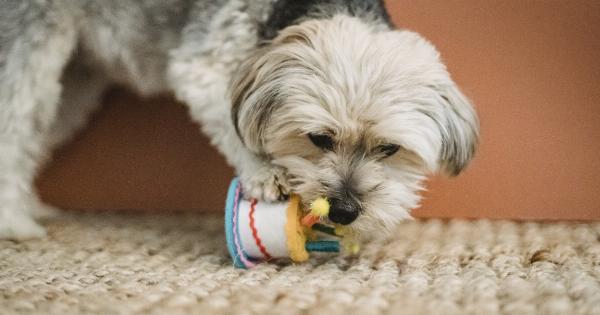Labrador Retriever is a medium to the large-sized breed of dog that originated in Newfoundland, Canada. They are an incredibly popular breed due to their intelligence, trainability, loyalty, and playful and friendly nature.
Labrador Retrievers are better known as Labs, and they are a part of the sporting group of dogs. They are good swimmers and are often used in hunting and fishing activities.
Physical Appearance
Labrador Retrievers are a well-muscled breed of dogs with a short, dense, and weather-resistant coat. They come in three primary colors: yellow, black, and chocolate. They have a broad head, a strong and powerful muzzle, and a broad back.
Their tail is thick and paddle-shaped, which helps them in swimming, their webbed feet are also an adaptation to facilitate this. Labradors are large dogs, with males weighing between 65 and 80 pounds and females between 55 and 70 pounds. They stand around 22-24 inches from the ground.
Temperament
Labrador Retrievers are known for their friendly and outgoing nature, which makes them an excellent companion for families with children. They have a great personality and warm personality.
They are also very obedient and intelligent dogs that make them popular with families who like to train their dogs. Labs are also suitable for search and rescue operations because of their quick learning ability and alertness. They are also use as therapy dogs for PTSD victims, auto-immune disorder patients and children with special needs.
Energy and Exercise
Labrador Retrievers are high-energy dogs that require regular exercise and playtime. They love to run, swim, play fetch and other games. Regular exercise and playtime help them to channel their energy and prevent them from developing destructive habits.
They are often used as service dogs, companion dogs and assistance dogs, all of which require a high level of energy. Walking, running, and playing fetch are excellent ways to provide Labs with the exercise they need. Regular exercise also helps them maintain a healthy weight and develop strong muscles, bones, and joints.
Training
Labrador Retriever’s love to learn, and they are a quick study. They are often used as guide dogs for visually impaired. As with every dog, it’s essential to start training your Lab early to prevent behavioral problems from developing.
Basic obedience training such as sit, stay, and come commands are essential for Labs. They thrive when they are engaged in activities such as agility, obedience, and other canine sports-training.
With consistent training and positive reinforcement, Labs can learn to do almost anything, from retrieving to providing help for people with disabilities.
Health
Labrador Retriever is a generally healthy breed, but they can be prone to certain health problems such as hip dysplasia, elbow dysplasia, and cataracts. Regular vet checkups, and a healthy diet prevent illness and help them live a long, healthy life.
It is also essential to maintain their dental hygiene by brushing their teeth, checking their ears, and keeping their nails trimmed.
Socialization
Socialization is critical for all breeds, but for Labrador retriever puppies, it’s essential. Socialization involves exposing your Lab to various situations and people regularly.
Proper socialization helps your Lab become more comfortable and confident in different environments and with different people and animals. This can prevent them from becoming anxious and aggressive around strange animals and people.
Adopting a Labrador Retriever
Adopting a Labrador Retriever is a significant responsibility and requires careful consideration. It’s essential to find a reputable breeder, rescue center, or shelter, and understand the needs of the breed before adopting.
Labs are high-energy dogs that require regular exercise, attention, and training to keep them happy and healthy. However, with proper care and attention, they make an excellent addition to any family.
Grooming
Labrador Retriever has low-maintenance, weather-resistant coats, that require brushing 2-3 times per week. Regular grooming and bathing are an essential part of their maintenance.
It’s also critical to maintain their dental hygiene by regularly brushing their teeth to prevent dental problems from developing.
Food and Nutrition
Labrador Retriever requires a healthy and balanced diet to maintain good health. Like all dogs, they need a diet rich in proteins, vitamins, and minerals to thrive.
Choosing high-quality dog food and providing them with the appropriate nutrition is vital for their overall well-being. It’s also essential to monitor their food intake to avoid overfeeding, which can lead to obesity.
Conclusion
In conclusion, Labrador Retriever is a lovely breed of dog that is intelligent, affectionate, and obedient. They are full of energy and require regular exercise, care, and attention.
With proper training, exercise, and socialization, Labs can become a reliable, loyal, and gentle companion. Owning a Labrador Retriever is an enriching and fulfilling experience that can last a lifetime.






























